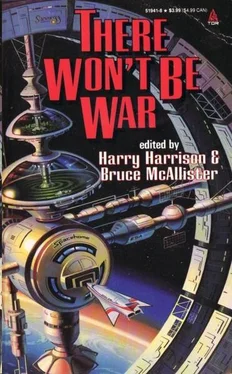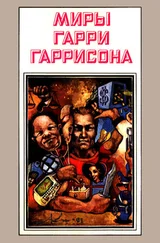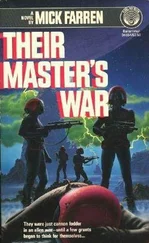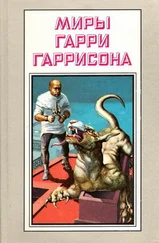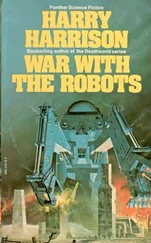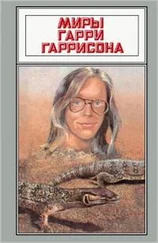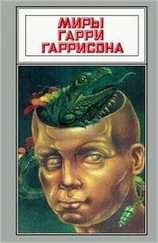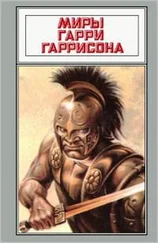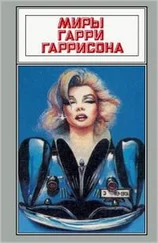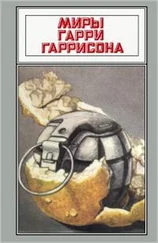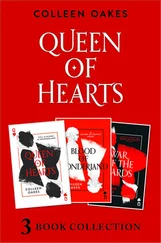The last day arrived. We gathered on the flat desert as the stars came out. Facing west, we saw a holo of three giant mushroom clouds swell up with a roar from the sands. Screaming human shapes twisted in the rising fireball, ballooned to massive size, and were torn apart. Torsos, limbs, and entrails fell on cities of cinder. People around me turned away, dropped to their knees and moaned; others clutched their heads and wailed. I gazed into the glow, feeling nothing.
A peacekeeper wearing a blindingly white one-piece suit stepped out of the roiling clouds of fire, gazed down at us as if we were ants and said, “Welcome to the 98th Peace Festival.” His voice was intimate and reassuring. He raised his hand. “The test area today takes in the cities of the west coast, including Los Angeles and New San Francisco. There is one live warhead in the first wave just launched by our partners in peace.”
I looked around at the parents with their sons and daughters. My father was in his shelter, in the strike zone, as required.
“The armed warhead,” the keeper’s figure continued, “is the possibility of war in each of you, but you shall not fear it.”
The mushroom cloud winked out. Gazing westward through the giant figure of the peacekeeper into a clear evening sky, I realized that if my father’s fears were real, our house would be destroyed in the next few minutes. I was afraid for him, and felt ashamed of my doubts.
“We do not fear!” the great figure intoned, reaching into me with strength and certainty. I waited, held by a new hope, but my stomach tightened as lights blossomed high in the west, and my father’s doubts crowded into me. Somehow, a warhead had escaped the beams of the orbital stations. I held my breath and waited in the shelter with my father for the flash that he had expected all his life.
The second wave bloomed and died. Trails of light scratched across the sky beyond the mountains as debris reentered and burned. Cries of joy went up from the gathering as parents embraced their children.
“Our peace is born again!” the keeper cried. “And it is stronger than ever.”
The giant figure turned and strode away across the desert, and I knew that my father was wrong.
He had always been wrong.
* * *
Coming home was a return to doubt. “Was there a live warhead?” I asked him. “Would they risk so many lives?”
“They’re getting us ready, that’s what they are,” he said from his chair, glaring up at me bitterly. “A keeper isn’t a human being, son. They sleep* into the future, tinker with their genes, with no two generations alike. They preach to us about keeping the peace, but they’re only buying time for themselves, so they can replace us. We’ve always had them—people who specialize in telling others how to live. Shamans and priests, then kings and politicians, and psychologists of every stripe—leaders, they always call themselves. But none of them ever helped us to be free and self-directed, because that would make us free of them. But they always helped themselves, stealing everything in the way of goods, pleasures, and privileges. Above all, they stole power.”
“But we have peace,” I said.
He sighed as his vehemence subsided into a look of pain. “I suppose nuclear terror was more dangerous, if something went wrong, but there are ways around this peace of ours.” He seemed moody and strange, out of touch.
I asked, “Did you go to the shelter?”
He nodded, clenching his teeth.
“But you weren’t in danger,” I insisted, sitting down at his feet. “I saw for myself.”
He leaned forward and grasped my head in his hands. “Son—you don’t know this world, or what you are. Most everything in our kind of organism is hidden deeply, and you’ve lived too easily to dig it out. There were clues in old poems, plays, and novels, but the keepers stole them from us. What I know has seeped into me slowly. I’ve read what I could find ... and there have been miraculous accidents in my thoughts, since your mother died. The keepers are making a garden for themselves—and for us a desert they call peace.” He gripped my head and looked into my eyes. “They’re working to be rid of us!” It seemed suddenly that he would crush my skull. “Do you understand?”
I tried to nod, realizing that there was no hope for him now. He let go and fell back, exhausted. “There’s no one left to know,” he whispered, “what’s been lost ....”He was silent for a while. “What are you going to do?”
“Join them.” I hadn’t intended to say it, hadn’t even realized that I had come to a decision. I would not be like him, I told myself, expecting angry, frantic words, and maybe even violence, because he would believe it was necessary.
He laughed suddenly and said, “Of course,” then shook his head and gazed steadily at me. “I knew you would in the end.”
When I joined the keepers, he stopped speaking to me, unable to see the great purpose to which I gave myself. One day he disappeared. I came home to visit, and no one in the area knew where to find him. At first I imagined that he had simply found some patch of wilderness to live out his life with the memory of my mother.
I found his last letter to me. He had written it by hand, and left it, unsigned, in his study, under the holo portrait of my mother and me.
Son,
Your kind is right, in a sense. Mine will never be at peace with itself—because for us violence must always be a matter of choice, to be embraced or rejected, depending on the circumstances. You would make us peaceful, but we would have to become you, and there would be nothing left of us. Perhaps you could leave a few of us in the wild; you might need us someday, when you have forgotten your origins. I know that, in your view, this is the bomb asking to retain its right to explode, the fire to consume, the beast to kill. You won’t live to feel this need within yourself before they change you. A part of me admires your willingness to set out into the unknown, to give up what you were given to be, to discard your humanity along the way. I can’t understand it, as once the apes failed to comprehend the humans among them. Transitions to a new state are always sad and disorienting; they require some loss of identity. I cannot imagine what you will have on that alien shore, where there will be nothing living to compete with you, when you have lost yourselves ....
I taught at the festivals for ten years before I was accepted by the third transhumans, the very core of the peacekeeping order. My mind opened to the future as I shed memories and prepared for longlife.
We who are changing have known the past and salute the passing makers whose peace enabled us to emerge. Even now a fourth humanity waits within us, poised to escape the last lingering perversities of the old human deep. Somewhere, the changeless still survive, my father among them, singing their ancient song of submission to blind nature, enemies to themselves, hurrying toward death with every tortured breath. There will be no new bodies for them, no ascent through time’s renewals, and no penetration of the mysteries. The time will come when we will not remember that these shadows once lived their unknowing lives, joined to death. We who have risen out of their agony and humiliation, stepped out of their swift currents, have purged ourselves of their menace.
We will not remember.
The Lucky Strike
Kim Stanley Robinson
War breeds strange pastimes. In July of 1945 on Tinian Island in the North Pacific, Captain Frank January had taken to piling pebble cairns on the crown of Mount Lasso—one pebble for each B-29 takeoff, one cairn for each mission. The largest cairn had four hundred stones in it. It was a mindless pastime, but so was poker. The men of the 509th had played a million hands of poker, sitting in the shade of a palm around an upturned crate sweating in their skivvies, swearing and betting all their pay and cigarettes, playing hand after hand after hand, until the cards got so soft and dog-eared you could have used them for toilet paper. Captain January had gotten sick of it, and after he lit out for the hilltop a few times some of his crewmates started trailing him. When their pilot Jim Fitch joined them it became an official pastime, like throwing flares into the compound or going hunting for stray Japs. What Captain January thought of the development he didn’t say. The others grouped near Captain Fitch, who passed around his battered flask. “Hey, January,” Fitch called. “Come have a shot.”
Читать дальше
